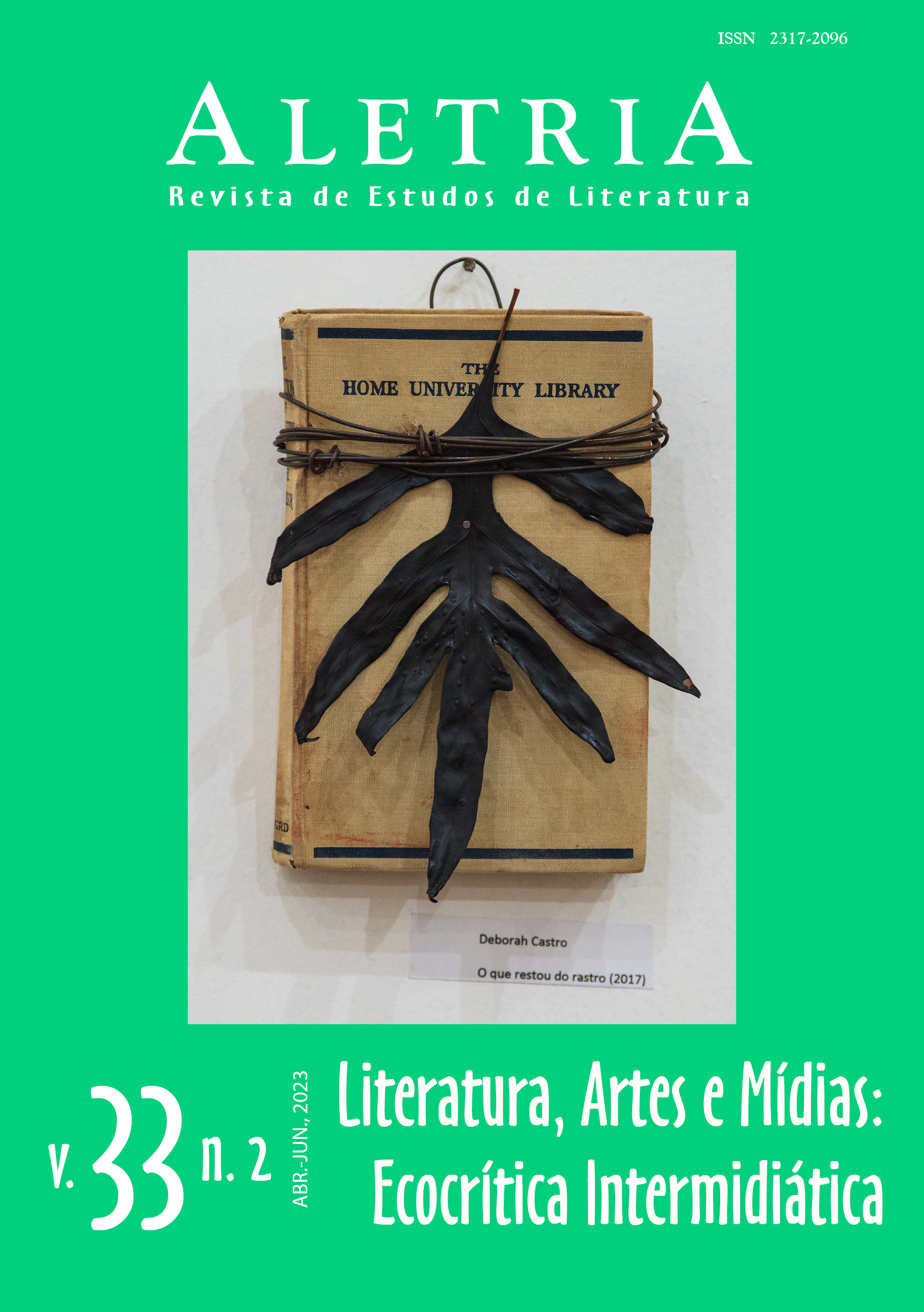Coming to Terms with Humans’ Double Role as Biological Beings and Geological Agents in the Anthropocene in Jenny Offill’s Weather
Keywords:
Antropoceno, Mudanças Climáticas, Jenny Offill, Literatura ClimáticaAbstract
The Anthropocene, the geological proposition to name the current Epoch and to describe the massive impact of the human on the biosphere, has precipitated a shift in the way humans understand themselves. No longer only a biological agent, the human is now (also) a geological agent, capable of altering the Earth’s systems in much the same way as great natural catastrophes do, such as great volcanic eruptions, the impact of large meteors and tectonic shifts. In Weather (2020), by American author Jenny Offill, we follow Lizzie, a librarian, in her journey through the cognitive shift that leads her to ponder her role in the unravelling of the climate crisis, the sixth mass extinction, seawater rise and so on. In this paper, I explore both the cognitive transition of Lizzie in the novel and the role of realist fiction in tackling the nearly impossible category of the Anthropocene.
Downloads
References
BUCK, Holly Jean; GAMMON, Andrea R.; PRESTON, Christopher J. Gender and Geoengineering. Hypatia, Cambridge, v. 29, n. 3, p. 651- 669, jun./ago. 2014.
Chödrön, Pema. The Places that Scare You: A Guide to Fearlessness in Difficult Times. Boston: Shambhala, 2001.
Clark, Timothy. Nature, Post Nature. In: WESTLING, Louise (ed.). The Cambridge Companion to Literature and the Environment. Cambridge: Cambridge University Press, 2014, p. 75-89.
Crutzen, Paul J. We aren’t doomed? An Interview with Paul J. Crutzen. In: Möllers, Nina; Schwägerl, Christian; Trischler, Helmuth (ed.). Welcome to the Anthropocene: The Earth in Our Hands. Munique: Deutsches Museum, 2014.
Ghosh, Amitav. The Great Derangement: Climate Change and the Unthinkable. Chicago: The University of Chicago Press, 2016. E-book.
Holsinger, Bruce. Bruce Holsinger, THE DISPLACEMENTS & Elizabeth Crips, WHAT CLIMATE JUSTICE MEAND AND WHY WE SHOULD CARE. [Entrevista cedida a] Writer’s Voice with Francesca Rheannon. Ago. 2022. Disponível em: https://www.writersvoice.net/2022/08/bruce-holsinger-the-displacements-elizabeth-cripps-what-climate-justice-means-and-why-we-should-care/. Acesso em: 13 ago. 2022.
Johns-Putra, Adeline, Goodbody, Axel. The Rise of the Climate Change Novel. In: JOHNS-PUTRA, Adeline (ed.). Climate and Literature. Cambridge: Cambridge University Press, 2019. p. 229-245.
Latour, Bruno. Facing Gaia: Eight Lectures on the New Climatic Regime. Cambridge: Polity Press, 2017. E-book.
Offill, Jenny. Weather. New York: Vintage Books, 2020.
Prather, M.; BLAKE, D. F. Sherwood Rowland (1927–2012). Nature, v. 484, p. 168, abr. 2012. Disponível em: https://www.nature.com/articles/484168a#:~:text=Returning%20home%20one%20evening%2C%20Rowland,the%20end%20of%20the%20world%E2%80%9D. Acesso em: 12 ago. 2022.
RUSS, Sandra W. Development of Creative Processes in Children. New Directions for Child and Adolescent Development, v. 1996, n. 72, p. 31-42, 1996.
ZALASIEWICZ, Jan et. al. When did the Anthropocene begin? A mid-twentieth century boundary level is stratigraphically optimal. Quaternary International, v. xxx, p. 1-8, 2014.
Downloads
Published
How to Cite
Issue
Section
License
Copyright (c) 2022 Melina Pereira Savi (Autor)

This work is licensed under a Creative Commons Attribution 4.0 International License.
Authors who publish with this journal agree to the following terms:Authors retain copyright and grant the journal right of first publication with the work simultaneously licensed under a Creative Commons Attribution Non-Commercial No Derivatives License that allows others to share the work with an acknowledgement of the work's authorship and initial publication in this journal.Authors are able to enter into separate, additional contractual arrangements for the non-exclusive distribution of the journal's published version of the work (e.g., post it to an institutional repository or publish it in a book), with an acknowledgement of its initial publication in this journal.Authors are permitted and encouraged to post their work online (e.g., in institutional repositories or on their website) prior to and during the submission process, as it can lead to productive exchanges, as well as earlier and greater citation of published work (See The Effect of Open Access).





